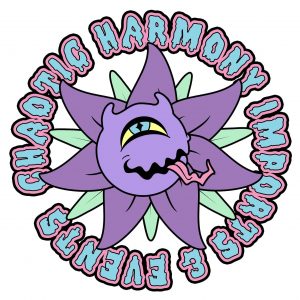
COVID-19, more commonly known as Coronavirus, is what is uniting the world at the moment. It seems like it’s the only thing anyone is talking about and it’s rapidly changing the face of our world. The longer people are staying and working from home and the more things are cancelled, the larger an impact Coronavirus is having on people’s lives and plans. The Otaku world is no exception, especially in Japan. A lot of parts of Otaku culture are being heavily impacted by Coronavirus to practise social distancing, due to a lack of expendable income and an increasingly stagnant economy, and to help stop the spread of the virus.
So what exactly has changed in Japan’s Otaku world because of COVID-19? And how is that affecting the Otaku population both in Japan and abroad? Keep reading to find out! Here at Honey’s, we have been experiencing it first-hand.
Delayed Airing Schedules and Releases
One of the most impacting things about Otaku culture that Coronavirus has affected is the anime airing schedule and video game release schedule in Japan. Everything from anime popular with a global audience like Re:Zero 2 to anime popular amongst Japanese children like Precure has been delayed. Production on a lot of new anime and games has slowed down considerably as well as companies are cutting back on office hours and the number of people in the office at once and so the spring anime airing schedule has completely changed as companies were not able to meet the deadlines to start in April. Square Enix even released copies of the Final Fantasy VII: Remake early for international audiences! They shipped out the game earlier than planned so that people everywhere could play it on release without fear of shipping delays caused by COVID-19 (and many people have already received their copies early!). Otaku here in Japan will just have to wait for the scheduled release date in the meantime, though it does give housebound gamers something to look forward to.
Cancelled Events
After COVID-19 was declared a worldwide pandemic, events around the world started to be postponed or cancelled. Japan was no exception, and the Otaku world was not spared. One of the earliest events to go was Nipponbashi Street Festival in Osaka, one of the largest cosplay events in the country. But since its infamous for its packed streets and huge crowds, it was cancelled in February out of fear of the virus.
Anime Japan in Tokyo, which is used by the anime industry and most studios to make major announcements and host stages every spring, held on for as long as it could. For a while, it seemed like Anime Japan would only allow masked attendees to come, and then it was possibly going to be postponed. In the end, it was also cancelled. More recently, Comiket in Tokyo, which is the year’s largest doujinshi event and has been running since 1975, was cancelled for the first time. Most other cosplay meet-ups and other Otaku-related events have followed in the steps of these big events, trying to avoid having people gather together in large groups and especially in crowded venues. We will have to wait and see about future events like Tokyo Game Show 2020, and whether or not they will be able to be held or not.
Closed Stores
At the time of writing this article, Japan is still not under a total lock-down like many countries around the world. However, many non-essential businesses have adopted shorter opening hours in the mornings and evenings, and in Tokyo and Osaka many shops and restaurants are closed on the weekends for now. Otaku businesses and concept cafes are not considered essential (though some strong-willed Otaku may argue otherwise!), which means that these stores are all closed or facing shorter hours. In addition to having fewer opening times for Otaku to go shopping or enjoy a themed meal, many people are avoiding going shopping altogether in an attempt to practise social distancing. And that doesn’t even account for Otaku who may have reduced working hours themselves and thus less expendable income to spend on their hobbies. Otaku merchandise is taking a major hit in sales because of all of these factors added together—and only time will see which businesses in Japan can come out intact after this.
Final Thoughts
The entire world has been affected by COVID-19 in various ways, some more extreme than others. Because its has impacted nearly every part of society in some way, even the Otaku world has been changed and affected. In Japan especially, the ripples of closed businesses and cancelled events have been felt very strongly by the Otaku community, especially with events that have never been cancelled before being gone for this season. In the rest of the world, the ripples are even greater as the anime industry and game industry in Japan are forced to delay releases, directly affecting Otaku that live outside of Japan as well as those who live domestically. Of course, everything has been closed, cancelled, or postponed for the greater good of the world, and we at Honey’s applaud the Otaku industry’s efforts to keep people safe and healthy. It just gives us all so many special things to look forward to when we finally can go back to normal again!
Have any of these Coronavirus measures directly affected your Otaku life? What are you most looking forward to after this pandemic ends? Have any parts of the Otaku world been helping you get through this global situation? We would love to hear from you below—and remember, wash your hands and stay safe, wherever you are reading from!
By. Jet Nebula
Recommended Post
Top 10 Anime Where Disease Runs Rampant [Best Recommendations]
Recommended Post
Top 10 Most Lethal Anime Viruses [Best Recommendations]
Recommended Post







